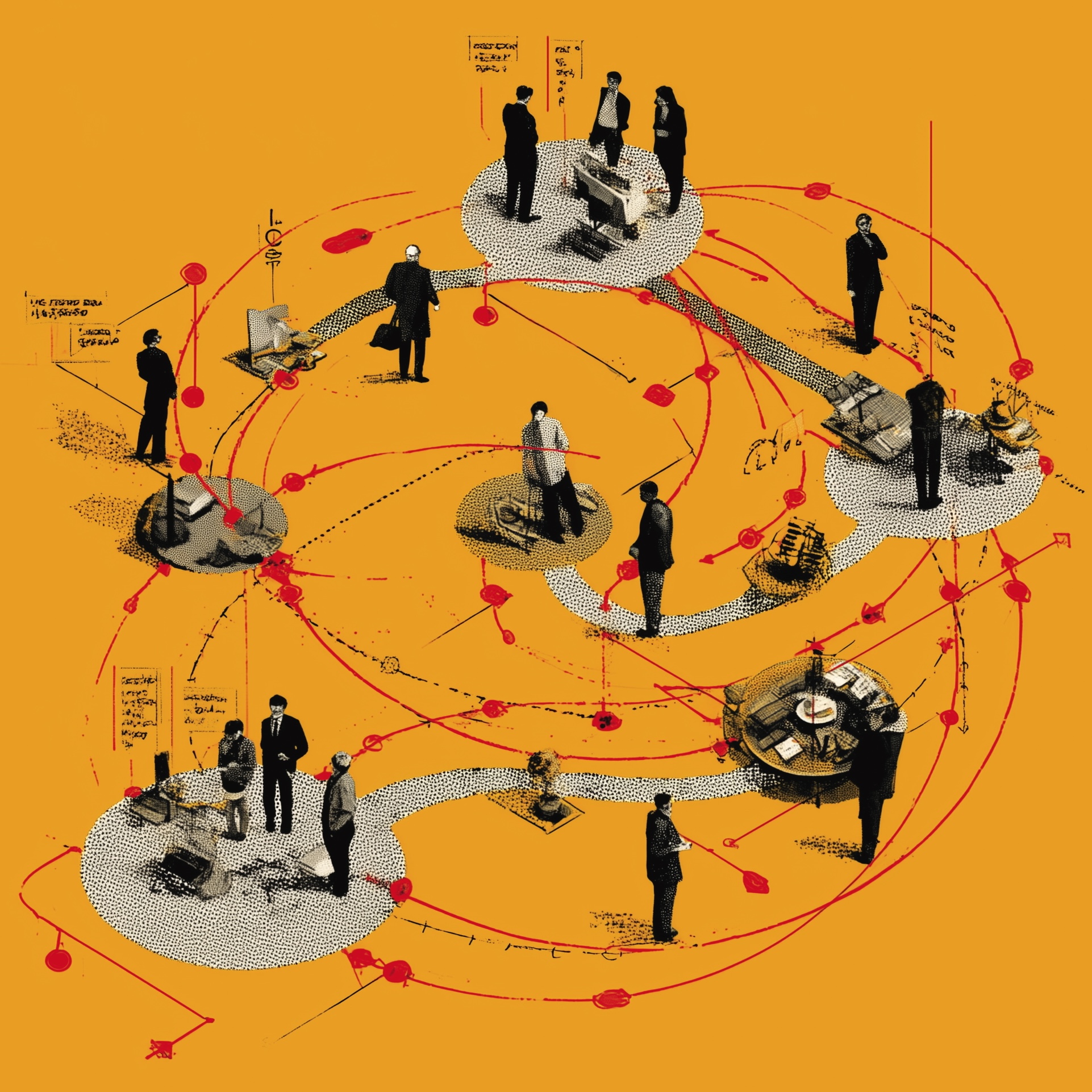Voice, value and vision: what analysts need from the NHS
Data analysts play a vital role in an NHS which is increasingly data-driven and focused on public health trends. But the NHS faces fierce competition for skilled analysts and many feel the health service fails to value them or fully use their talents. Alison Moore reports.

“We need to double the pay we’re offering good analysts,” says Steve Black, a former NHS data analyst and management consultant who still works closely with the health service.
While some analysts would disagree, pointing to other benefits of the job, there’s no doubt the NHS faces a highly competitive market for data analysts. Many can earn far more in the private sector, especially in finance. “We do lose people to the private sector for less responsibility but £20,000 more,” says Ruth Holland, director of regions for the Association of Professional Healthcare Analysts (AphA) and deputy chief information officer at Imperial College Healthcare Trust.
This disadvantage is made worse by the vagaries of the Agenda for Change pay framework. Starting salaries and pay progression can be variable, depending on where analysts are working, leading some to argue that analysts need to be moved to a different pay scale altogether.
AphA’s director of policy, Neil Morgan, says entry level jobs — which can be graded as low as Band 4 or 5 — usually get a reasonable range of applicants, but attracting analysts for more senior jobs is harder, especially those that require specific, highly-prized skills such modelling, AI, machine learning and data prediction.
“We could lose out if we can’t match the pay in the commercial sector,” he warns. “People get more excited by the thought of working for Google, Amazon or IBM. This is one of the areas where NHS England needs to be on the front foot.”
No one joins for the money
But, as Shevon Licorish, an NHS data architect and AphA’s branch lead in the north east and north Cumbria, points out, no one joins the NHS for the money. There are other satisfactions to the job, he says, such as feeling you’re making a difference and improving care — but it’s also vital that people feel valued and empowered. As analysts often work in small teams, the culture of that team is also important for how they feel, he explains.
“We have too many managers and managers masquerading as leaders with their heads down on controlling resource and optimising processes, and not enough actual leaders who share their vulnerabilities, passion and as much of their authentic self as possible,” he says. The NHS needs leaders who can sell the virtues of the NHS and “inspire and empower current and future data and analytics professionals in and into our workforce,” Licorish adds.
The analytics profession is now pushing for greater recognition and a voice at the top table, and crucial to this a new competency framework being developed with AphA by NHS England, which could lead to more standardised career pathways. “That provides a structured framework for skills development for analysts in health and care,” says Morgan. “That did not exist before.”
Analysts often work in multidisciplinary healthcare teams with other professionals for whom continuous professional development (CPD) and keeping up with new technologies are requirements. Holland argues similar requirements should apply to analysts. “How can we keep pace with such a rapidly evolving sector if we don’t invest in our own CPD?” she says.
Self-assessment using the new framework will allow practitioners to profile their own skills, see gaps in their and their team’s competencies and also celebrate what they can do, says Morgan. And professional accreditation through groups such as AphA will also help, he adds.
Out of the shadows
Many analysts, including Morgan and Steve Black, welcome the emergence of chief analytical officer (CAO) posts in many NHS organisations, hoping they will become advocates for the profession at board level.
“It’s really important that the CAO is there, ideally at board level,” says Morgan. “A CAO is the opportunity to influence decision making but also to think about the strategic and operational level. It helps to focus the requirement for both professional development and the need for analytical and data literacy at all levels in the organisation.”
Licorish says that analysts are often lumped in with other IT and digital professionals, with a reporting structure leading upwards to the chief digital or information officer. He warns that this leaves analytics as a “shadow profession”, where the unique value analysts can bring goes unrecognised.
With her job title as chief data and analytics officer, he sees NHS England’s Ming Tang as effectively ‘head of profession’. “We need a chief data analyst officer at a C-suite [senior executive] level, given weight and the opportunity to speak,” Licorish says. “This could address the knowledge gap on boards about what analysts actually do.”
The NHS often puts analysts “in a box”, undervaluing them and making only limited use of their skills, says Steve Black. “Senior people are not engaging with analysts to get the best answer to a question,” he warns, often asking analysts to produce particular sets of data rather than asking what data is needed to solve a problem. “Their position often doesn’t allow them to feedback,” he says, and sometimes their suggestions are ignored
Waste of talent
Richard Carthew, a recently-retired analyst for NHS Digital and former member of MiP’s National Committee, agrees there is a “waste of talent” among NHS analysts. Their skills are “just not harnessed in a productive way. You can get more and more data but if you’re not prepared to do anything with it, then don’t do it,” he says.
Organisations also need to learn more from each other, he says. Many mental health trusts use the Rio electronic patient record system, but there has been little sharing of knowledge between the different analytical teams extracting data from it — there’s no need for each organisation to reinvent the wheel, he adds.
Failing to deploy data analysts effectively can also devalue other investments the NHS makes, Carthew warns. For example, many hospitals use bed management software but have failed to invest in the analytical capability needed to get full value from the system in terms of improving patient flow and, ultimately, A&E performance. “It’s easy to destroy value in other things if you don’t employ analysts,” he says.
Instead, ministers should think about “how to make hundreds if not thousands of small changes and improvements,” he says. “We’ve never been very good at linking up challenges with solutions, so this is an opportunity to draw on the expertise that already exists in the NHS and the energies of 1.4 million staff. That needs to be at the heart of the plan.”
The golden thread: why we need more analysts

There’s a “golden thread” connecting the work analysts do to the benefits for patients and staff, says Ruth Holland, deputy chief information officer at Imperial College (pictured). As an example, she points to how, during the pandemic, data analysts helped to calculate hospitals’ likely needs for oxygen and critical care beds.
Analysts work in all parts of the NHS — trusts, integrated care boards, commissioning support units and arm’s length bodies like NHS England — and their day-to-day work varies from place to place. But most will be pulling together data from different sources and helping to interpret it. This can improve productivity, support clinical processes and clinicians, and give insights into how an organisation is performing.
But analysts also spend a lot of time working on regular data submissions to bodies like NHS England — “feeding the beast”, as one analyst calls it. Data collection has ballooned in the NHS since the service started compiling statistics on things like bed occupancy in 1980s. And this time-consuming work is, of course, replicated many times over in trusts and ICBs across the country. While it may be possible to automate some of this work using large language models and other forms of AI, it hasn’t happened yet.
The demand for data analysts is set to soar in the coming years. Based on NHS England’s own findings, the Association of Professional Healthcare Analysts (AphA) suggests numbers could rise from 13,000 to 35,000 by 2030. But last year’s NHS Long-term Workforce Plan failed to mention analysts and consideration of the digital workforce was relegated to an addendum to the main report.
Growth areas for data analytics include health inequalities, service redesign and population health. “There’s an opportunity for analysts to come in and build subject matter expertise in these areas,” says Neil Morgan, AphA’s director of policy. “There are huge opportunities and it’s a really exciting time for anyone thinking of coming into analytics in health and social care.”
Related Stories
-

NHS job cuts: you’ll never walk alone
As the NHS redundancies in England loom, Rhys McKenzie explains how MiP will back you, and how members supporting each other and acting collectively is the best way to navigate this difficult process.
-

What now? Seven expert takes on the Ten-Year Plan
The government’s Ten-Year Plan for the NHS in England has met with enthusiasm and exasperation in equal measure. We asked seven healthcare experts to give us their considered view on one aspect that interests, excites or annoys them.
-

NHS job cuts: what are your options?
When politicians start reforming the NHS, there is only one certainty: some people will lose their jobs. But what options might be on the table and how does redundancy work? Corrado Valle explains.
Latest News
-

Government proposal for sub-inflation pay rise “not good enough”, says MiP
Pay rises for most NHS staff should be restricted to an “affordable” 2.5% next year to deliver improvements to NHS services and avoid “difficult” trade-offs, the UK government has said.
-

Unions refuse to back “grossly unfair” voluntary exit scheme for ICB and NHS England staff
NHS trade unions, including MiP, have refused to endorse NHS England’s national voluntary redundancy (VR) scheme, describing some aspects of the scheme as “grossly unfair” and warning of “potentially serious” tax implications.
-

Urgent action needed retain and recruit senior leaders, says MiP
NHS leaders are experiencing more work-related stress and lower morale, with the government’s sweeping reforms of the NHS in England a major factor, according to a new MiP survey.